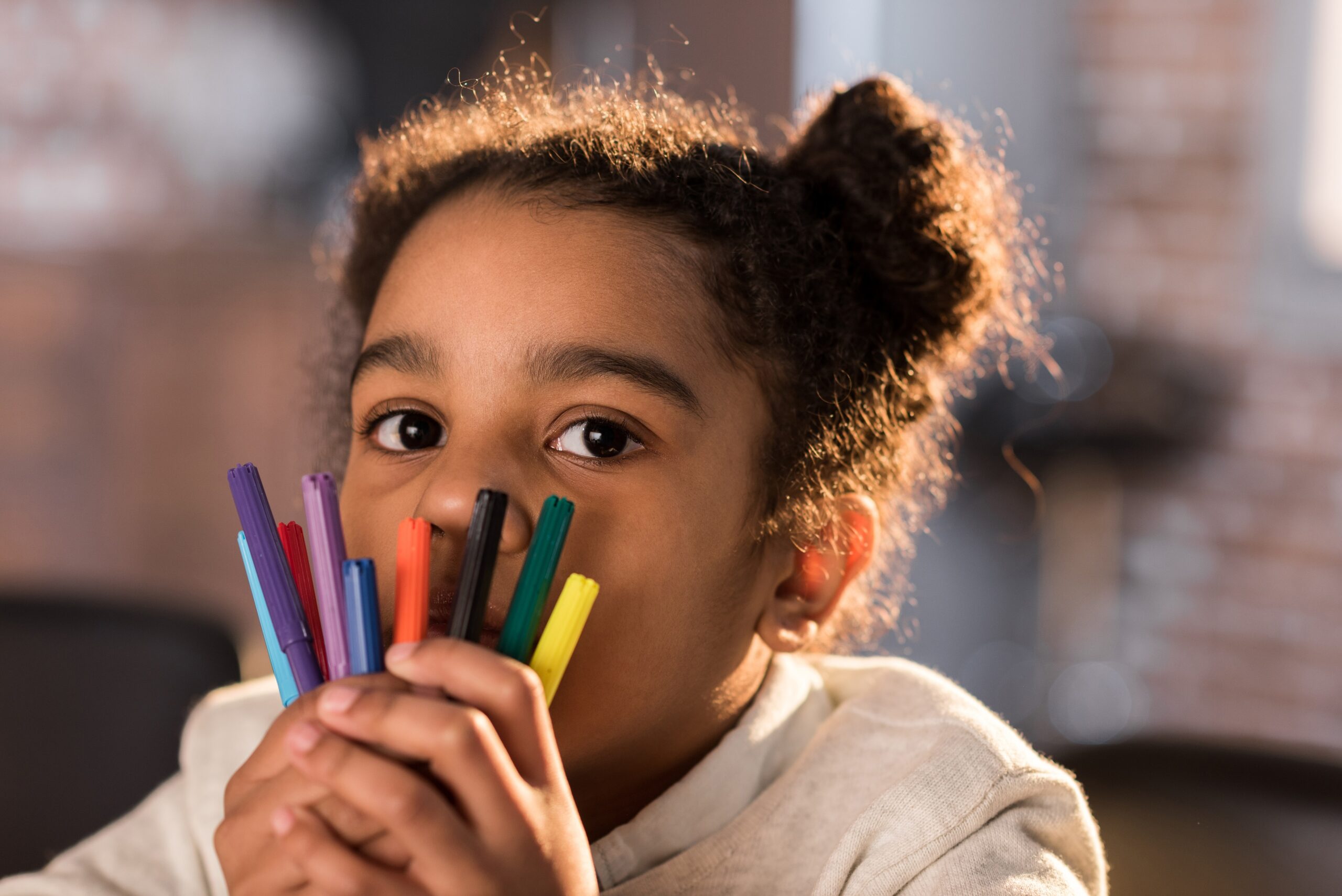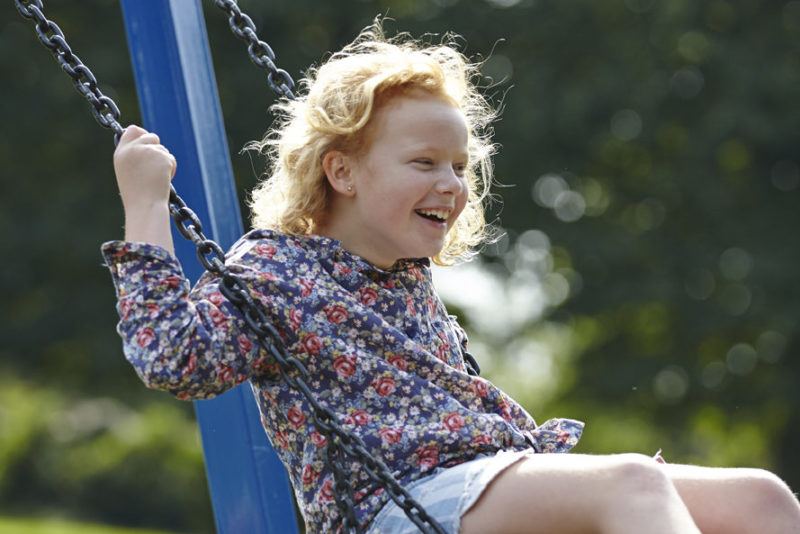Millie*, now aged 9, was referred to the Bounce Back 4 Kids (BB4K) team for support in 2020 after experiencing an environment of domestic abuse from her mum’s previous relationships. She was too young to attend the BB4K group sessions on offer at the time so play therapy was recommended.
Millie and her mum Flora* had previously been in contact with domestic abuse services in their local area, and they referred the family to BB4K because there was concern for Millie’s emotional wellbeing as a result of her early life experiences. Flora was concerned about Millie’s low self-esteem, difficult behaviour, impulsivity, negative view of self and mistrust of men. Millie was struggling to understand and manage her emotions both at home and at school, which in turn was making it hard for her to form relationships with her friends and her four siblings.
Millie and her mum received support over the course of a year, ending in September 2021. Millie received weekly one-to-one play therapy sessions to help her explore and express her feelings at her own pace.
Play therapy helps children make sense of their life experiences. Play is children’s natural medium to learn, communicate and to explore their worlds. Conventional talking therapies may be inappropriate for children and young people who struggle to put their feelings into words. Play therapy allows children the opportunity to explore and understand these feelings through play at their own pace.
BB4K also supported Flora through phone calls, emails and face-to-face meetings to develop her understanding of therapeutic PACE parenting strategies and help her learn about the impact of domestic abuse and post-natal depression on the parent-child relationship. Flora hoped the support from BB4K would help Millie process her past experiences, improve Millie’s relationship with her step-father and strengthen her bond with Flora.
When the sessions began, the play therapist observed that Millie was showing a lot of anger, mainly aimed at her mum. Flora had broken off contact with Millie’s grandmother and Millie resented that she was no longer able to see her. Using a non-directive child-centered approach, the play therapist worked with Millie to enable her to express her feelings and process her experiences and emotions through a variety of media. Millie used sand, art materials, music, song and dance to tell her stories. As the play therapist built up a relationship of trust with her, Millie was able to communicate more freely and reflect on her own responses to things going on around her, and she began to understand how she could regulate her own emotions and choose to respond differently.
Over the year of support, Millie became more settled in sessions and showed an increased self-awareness and confidence to verbalise her needs and choices. She now shows empathy towards others; for example, when her brother and step-father had to go to hospital, she was very concerned and requested that she make them bracelets to show she was thinking about them. Flora has established a more predictable routine for Millie with regular visits to see Millie’s father and step-mother, and both Millie’s parents have worked together to help ease this transition. Flora also noticed that her relationship with Millie has greatly improved and Millie now enjoys spending time with her mum and looks forward to the time they spend as a family. Millie has a better understanding of how to control her anger and is no longer looking for attention in negative ways. Her relationships with others have improved and she is doing better at school.
As Millie’s play therapy sessions came to an end in September 2021, she was able to choose some positive affirmations about herself and put these into a book, and she could identify ways to calm her mind and body. Flora recognises there is still some work to do to maintain the relationship with her daughter and is open to advice and support to help with this.
* Names changed for confidentiality
I found the support to be a huge help. The play therapist was amazing and so engaged with our family. Millie is now a totally different child. I cannot thank BB4K enough. She has control over her anger, her behaviour at home is wonderful and at school she is no longer causing trouble and is actually making friends. My family feels like it’s whole again.
Millie’s mum Flora
Help more children like Millie
With your support, we can continue to provide vital services to adoptive families, women facing multiple disadvantages and children affected by domestic abuse
Donate today
With your support, we can continue to provide vital services to adoptive families, women facing multiple disadvantages and children affected by domestic abuse



